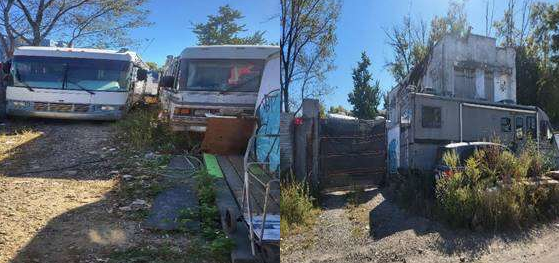By Jerry Tallmer
Call it the shock of recognition. It doesn’t take a Freud, a Proust or an Einstein to make the connection. Just one word will do.
Republic!
We haven’t had much cause to think about sit-down strikes in this country since the Great Depression years of 1936-’37, when a wave of such phenomena spread like wildfire from coast to coast, particularly in the automobile and steel industries.
Well, out of nowhere — or, as it seems, out of management callousness — there has just occurred a rebirth of the sit-down strike…at, of all places, the North Chicago plant of a going-defunct Republic Windows and Doors factory.
I don’t know how many miles that is from the South Chicago Republic Steel factory of the 1930s. But it can’t be all that many, and certainly not far enough to keep a onetime schoolboy from remembering how shook up, appalled and radicalized he’d been, back then, as he’d consumed newspaper accounts and watched newsreels of the Republic Steel Memorial Day massacre of Monday, May 30, 1937, that left 10 picketing strikers — men and women — dead or dying, and 30 others grievously wounded by the pistols and batons of Chicago’s finest.
If there is that jolting Freudian mirroring of “Republic,” there are also differences of course. Tough Tom Girdler, the Republic Steel head who once swore, “I’ll go back to the farm and dig potatoes before I sign with [John L. Lewis’s] C.I.O.,” is as long dead as Republic Steel itself. There was no sit-down at Republic Steel, and there has been no bloodshed at Republic Windows and Doors — just people sitting around on folding chairs, bringing in food and toys for their children. They are, so I read, mostly Hispanics and blacks, who must have been few in number, if any at all, back in 1937 at Republic Steel.
Tom Girdler was trying to bust the union before it took hold, The management of the collapsing Republic Windows and Doors — collapsing because Bank of America (itself a recipient of bailout) had cut off the credit pipeline — gave the factory’s 250 employees only three days’ notice (instead of the federally required 30 days) that they were about to be out on the street without jobs, severance, health insurance, anything.
One can understand their anger; it is very nearly the anger of America itself; surely also, however coolly controlled — as is his wont — of a certain Chicagoan named Barack Obama.
The Memorial Day massacre at Republic Steel still lives in words and pictures on the Internet. Some of the best of those words are in a long, vivid account of the whole event by the novelist Howard Fast. Somewhere in his narrative there is a Chicago cop telling the Republic Steel picketers: “You got no rights. You red bastards, you got no rights.”
So there it is, the time machine spinning together Republic then, Republic now — less, at this writing, any batons, bullets or blood. That is progress, to be sure. But the sit-down strikers at Windows and Doors look for more, much more, as do I; as — I trust — do you.





































